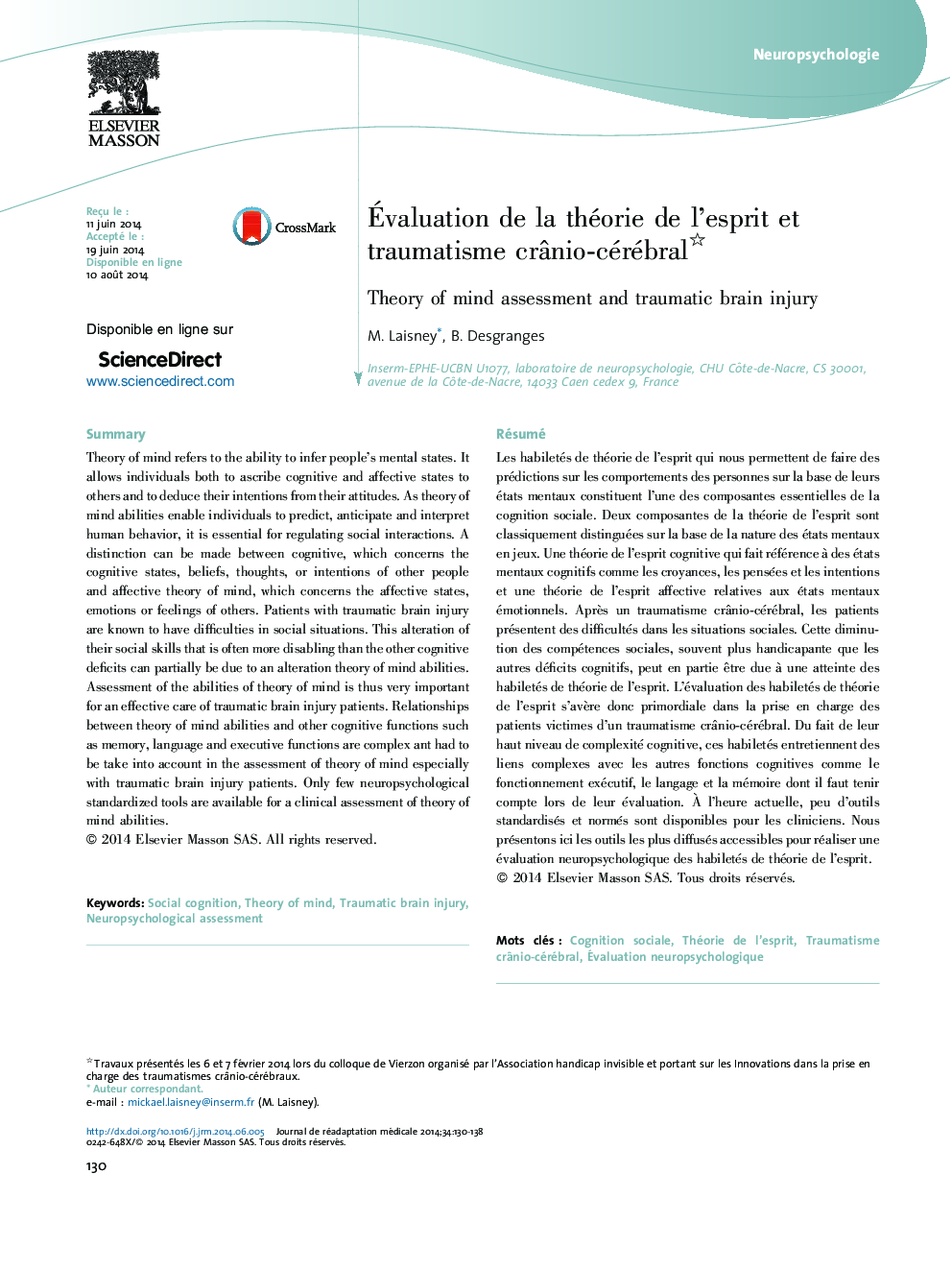| Article ID | Journal | Published Year | Pages | File Type |
|---|---|---|---|---|
| 2703509 | Journal de Réadaptation Médicale : Pratique et Formation en Médecine Physique et de Réadaptation | 2014 | 9 Pages |
Abstract
Theory of mind refers to the ability to infer people's mental states. It allows individuals both to ascribe cognitive and affective states to others and to deduce their intentions from their attitudes. As theory of mind abilities enable individuals to predict, anticipate and interpret human behavior, it is essential for regulating social interactions. A distinction can be made between cognitive, which concerns the cognitive states, beliefs, thoughts, or intentions of other people and affective theory of mind, which concerns the affective states, emotions or feelings of others. Patients with traumatic brain injury are known to have difficulties in social situations. This alteration of their social skills that is often more disabling than the other cognitive deficits can partially be due to an alteration theory of mind abilities. Assessment of the abilities of theory of mind is thus very important for an effective care of traumatic brain injury patients. Relationships between theory of mind abilities and other cognitive functions such as memory, language and executive functions are complex ant had to be take into account in the assessment of theory of mind especially with traumatic brain injury patients. Only few neuropsychological standardized tools are available for a clinical assessment of theory of mind abilities.
Keywords
Related Topics
Health Sciences
Medicine and Dentistry
Orthopedics, Sports Medicine and Rehabilitation
Authors
M. Laisney, B. Desgranges,
